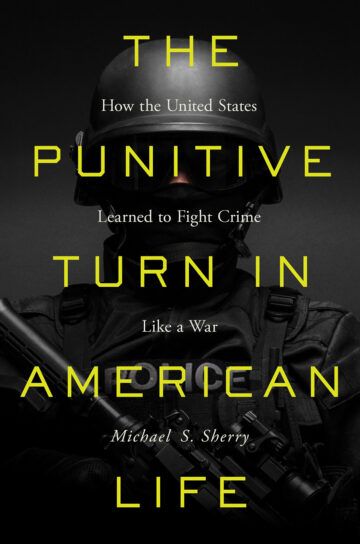In 1965, President Lyndon Johnson insisted that “the policeman is the frontline soldier in our war against crime,” and police forces, arms makers, policy makers, and crime experts heeded this call to arms, bringing weapons and practices from the arena of war back home. The Punitive Turn in American Life offers a political and cultural history of the ways in which punishment and surveillance have moved to the center of American life and become imbued with militarized language and policies. Michael S. Sherry, AB ’67, argues that, by the 1990s, the “war on crime” had been successfully broadcast to millions of Americans at an enormous cost — to those arrested, imprisoned, or killed and to the social fabric of the nation — and that the currents of vengeance that ran through the punitive turn, underwriting torture at home and abroad, found a new voice with the election of Donald J. Trump. By 2020, the connections between war-fighting and crime-fighting remained powerful, evident in campaigns against undocumented immigrants and the militarized police response to the nation-wide uprisings after George Floyd’s murder. Stoked by “forever war,” the punitive turn endured even as it met fiercer resistance.

The Punitive Turn in American Life
How the United States Learned to Fight Crime Like a War